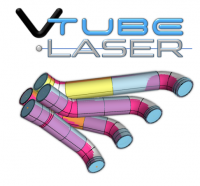Difference between revisions of "VTube-LASER Near Pass Deviation"
From ATTWiki
| (4 intermediate revisions by one user not shown) | |||
| Line 2: | Line 2: | ||
<tr cellpadding=10> | <tr cellpadding=10> | ||
<td width=225> | <td width=225> | ||
| − | |||
* Back to [[VTube-STEP]] | * Back to [[VTube-STEP]] | ||
* Back to [[VTube-LASER]] | * Back to [[VTube-LASER]] | ||
</td> | </td> | ||
<td width=300> | <td width=300> | ||
| − | [[image: | + | [[image:vtube-laser_logo_1.96.png|200px]] |
</td> | </td> | ||
</tr> | </tr> | ||
| Line 50: | Line 49: | ||
<td> | <td> | ||
[[image:vtl_systemoptions_button.png|600px]]<br> | [[image:vtl_systemoptions_button.png|600px]]<br> | ||
| − | [[image: | + | [[image:vtl_nearest_pass_max_deviation2.png|600px]] |
</td> | </td> | ||
</tr> | </tr> | ||
Latest revision as of 13:58, 29 June 2022
|
About Near Pass Deviation
|
The point at which two 3D lines are the closest to each other is where they come closest to intersecting. The distance is the “nearest pass.” |
How it is used in VTube-LASER
|
VTube-LASER checks for and displays the Nearest Pass value when measuring two intersecting tube straights. If the value is too high, then VTube-LASER will ask you to remeasure the tube until the value is within tolerance. The default tolerance for Nearest Pass is 2mm. |
How To Change the Tolerance
|
You can change the tolerance by entering System Options, Measure 1 menu and changing the Maximum Near Pass Deviation Allowed value. |
|
|
You can change the tolerance when measuring by pressing the gear button at the top of the Cylinder Fit Data window. |





